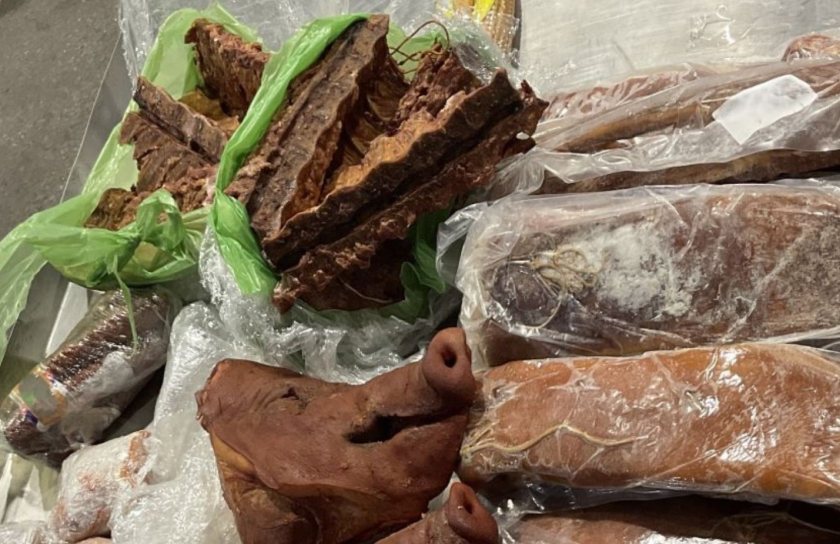
Over ten tonnes of illegal meat have been seized at Dover in just two weeks — a haul more than three times higher than last year, sparking warnings of a border “crisis” and urgent calls for government action.
The dramatic surge - a 324% increase - has been described as evidence of a growing emergency at one of the UK’s most critical borders.
The Dover Port Health Authority (DPHA), operating under Dover District Council, reported the record seizures as it renewed its call for immediate government intervention.
The warning comes on the heels of two hard-hitting reports published by the Environment, Food and Rural Affairs (EFRA) Committee, which scrutinised biosecurity at Britain’s borders.
According to the DPHA, the reports lay bare the escalating risks and underline the urgent need for Defra to bolster safeguards.
“The time to act is now,” a spokesperson stressed, highlighting the scale of the threat posed by unchecked imports.
Farmers and industry leaders have voiced particular concern about the UK pig sector, warning that illegal meat imports heighten the risk of devastating diseases such as African swine fever entering the country.
An outbreak, they say, could cripple domestic production, disrupt supply chains, and cost the industry hundreds of millions of pounds.
The National Pig Association has repeatedly cautioned that the sector simply cannot afford a lapse in border biosecurity, urging Defra to act before the situation spirals further.
EFRA Committee Chair, Mr Carmichael, addressed the issue in a statement on 11 September, commending the efforts of Dover’s port health officers.
“I place on the record the Committee’s gratitude to, and my personal admiration of, Lucy Manzano and her team at the Dover Port Health Authority, who have done a remarkable job and a significant public service in bringing this to the attention of the wider population,” he said.
Describing the influx of illegal meat as “a crisis that has been brewing for years, if not decades”, Mr Carmichael warned that the risks extend beyond national concerns.
“It is also a crisis that matters not just on the national level but on the individual and personal level. We have identified the risks and some of the solutions.
"It is essential that Defra takes those risks seriously and acts to mitigate them with urgency. The stakes are too high for further inaction.”
Lucy Manzano, Head of Port Health and Public Protection at DPHA, echoed the urgency. Calling the EFRA reports “a vital wake-up call”, she highlighted the strain on her team.
“Our team is intercepting tonnes of illegal meat every week – over 10 tonnes in the first half of September alone – with minimal people on the ground,” she said.
Ms Manzano argued that the proposed new Sanitary and Phytosanitary (SPS) agreement could be pivotal in preventing further crises.
“The new SPS agreement presents a pivotal opportunity to rebuild a system that protects public, animal, and plant health, secures our borders, and stops this crisis in its tracks.”
